
Got Poetry?: Suggestions for National Poetry Month
It’s National Poetry Month again, and there are so many wonderful new poetry collections for you to enjoy! Before I get to the list, I want to share a poetry-related anecdote with you as a reminder of the ways poetry can bring people together.
This winter, I had to go in for jury duty. On my first day there, I dropped my book when I was leaving the courtroom. I didn’t realize it until I checked my purse later that evening, at which point I drove downtown to see if I’d dropped it outside. (What can I say: it was supposed to rain that night, and the possibility of my book getting drenched on the concrete was not something I was prepared to entertain.)
My book wasn’t there, so I resolved to see if the courthouse had a lost and found. When I went in the next morning, I asked the security guard working the x-ray machine where the lost and found was. Now, this guy was very tall and very solid — a real rock of a human being. The previous day, he’d literally grunted at my attempts at conversation. This time, he pointed me in the right direction, then asked what I’d lost. I told him: a book of poetry. His response? “That’s horrifying!”
I jokingly responded, “That I was reading poetry? Or that I lost it?” He looked at me with this totally earnest expression on his face and proceeded (brace yourself) to recite a line of poetry. When I raised an eyebrow, he simply said, “That’s Emerson.” Then he extolled the merits of Whitman to me before wishing me luck and turning to the next person in the security line.
Bemused, I went to the lost and found. No luck. Then I headed to the courtroom, my hope running low. When the bailiff emerged into the hallway, I gathered the remaining fragments of my optimism and approached him.
“Excuse me, but did anyone find a book in here last night?” His smile was instantaneous and ginormous.
“The poetry collection?” I was ecstatic — he knew what I was talking about! He popped back into the courtroom to retrieve it, and when he came back out, his smile was even bigger than before. As he handed it to me, he said, “It was really good!” For just one second, as he returned the book to me, his hand held one side of the book while mine held the other. We stood there, literally joined by this thin volume, and smiled dopily at each other. Then, blushing, he let go and began to take roll.
Only then did I realize the implication of what he’d said: the bailiff had read my book! (And enjoyed it!) I didn’t end up serving on that jury, but I have very pleasant memories of the experience, thanks to the magic of poetry.
So I hope the books on this list bring you joy, wonder, and perhaps even an unexpected connection. I’ll begin with the book I left behind (and was so happily reunited with): Amber McBride’s Thick With Trouble.
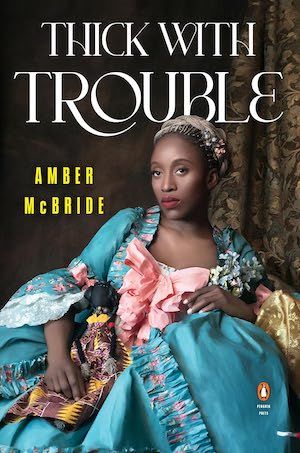
Thick With Trouble by Amber McBride
This book fascinated me immediately because it’s broken into five sections based on reimagined tarot cards. As if that wasn’t interesting enough all on its own, the language McBride uses instantly transported me to a unique poetic space. In this collection, life cycles are examined in a manner that centers women and asks timely questions about what it means to be trouble, cause trouble, or get into trouble. The collection is as beautiful as it is powerful.
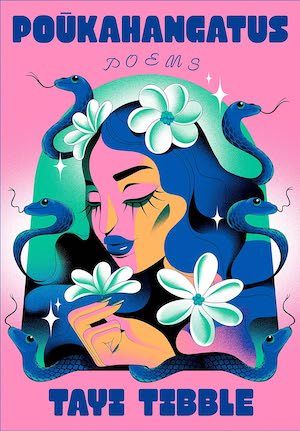
Poūkahangatus by Tayi Tibble
This is a collection that will make you laugh and cry in equal measure. Tibble is undeniably skilled at wielding humor to make various observations and critiques of the intertwined nature of colonization, sexism, and the power of stories. But while there are definite invitations to laugh in these pages, there are also many important moments where she shifts colonial narratives in order to make space for an Indigenous perspective.
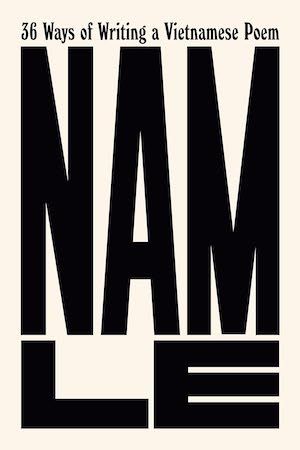
36 Ways of Writing a Vietnamese Poem by Nam Le
This book, composed of what are arguably either 37 related poems or one book-length poem, is one that will grip you from start to finish. The poems (or sections, depending on how you read them) each grapple with different aspects of racism and imperialism. Whether that’s through the recurring theme of language (the violence of English, the tonality of Vietnamese, how the audience might impose their problematic expectations onto the speaker) or the exploration of anti-Asian hate, this is a book that will leave you breathless.
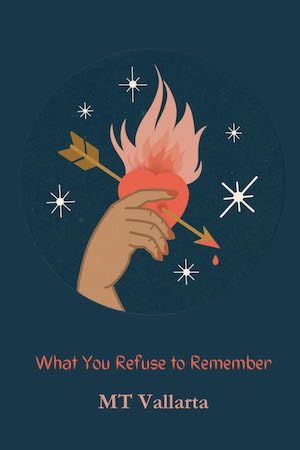
What You Refuse to Remember by MT Vallarta
This collection made its way onto my radar because the poet is a colleague of mine. That being said, it took my breath away. While Vallarta ruminates on deeply personal experiences, both recent and long past, the rawness with which they explore trauma and grief has universal resonance. This collection is a whirlwind that will sweep you up in its pages (and where it sets you down will depend on the depth of your own emotional hurts).
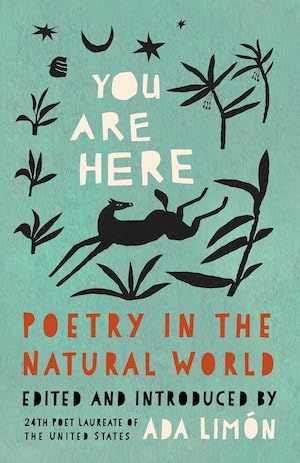
You Are Here: Poetry in the Natural World edited by Ada Limón
You Are Here will have you rethinking how you encounter nature in your everyday existence. The 50 poems gathered together to create this volume invite readers to experience “nature” as each author encounters it in the landscape around them. There are many recognizable names collected into this volume by Limón in her capacity as the 24th US Poet Laureate. More excitingly still, this collection is only half of Limón’s project; the other is called Poetry in Parks and involves poetry installations in the US’s national parks system.
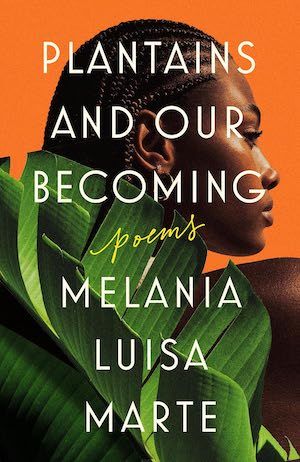
Plantains and Our Becoming by Melania Luisa Marte
Marte’s latest book is comprised of three sections which focus first on diaspora (especially in relation to race, gender, and language), then on plantains (their history, uses, and cultural significance), and finally “on becoming” as the book’s title promises. Throughout the hefty collection, the poems investigate so many different but related facets of racialized identities, (im)migrations, gender, and love (to name just a few central themes) in ways that are simultaneously critical and emotional.
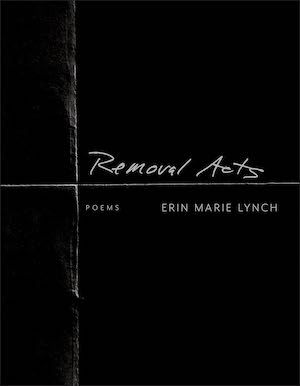
Removal Acts by Erin Marie Lynch
Containing a single poem Foreword and the rest of the collection (labeled “Afterword”), Lynch’s collection begins with an invitation to think about what exactly these poems are ‘fore or after. The silence at the heart of the collection has everything to do with colonial histories and their contemporary impacts, which range from the deeply individual (like the speaker’s disordered eating) to the broadly sociopolitical (like problems with specific legislative acts). The poems in this collection are inventive and magnetic.
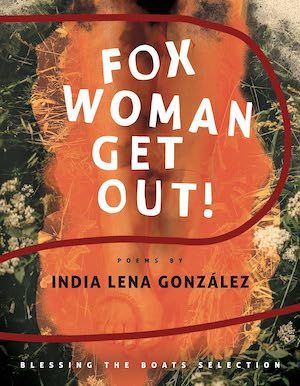
Fox Woman Get Out! by India Lena González
This debut collection is vibrant and allows readers to engage with the poet’s unconventional layouts in ways that activate both critical and imaginative thought processes. It’s a moving exploration of indigeneity, gender, and performance. Because González is playing with how the words fall on the page, the collection asks readers to engage fully with the poems in a way that (to this reader) is frankly highly satisfying and immersive.
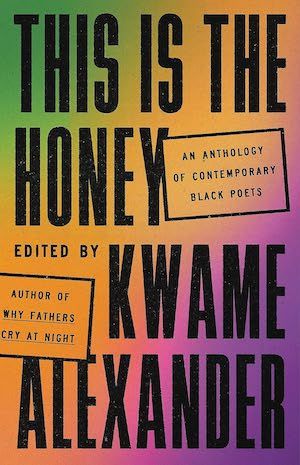
This is the Honey: An Anthology of Contemporary Black Poets edited by Kwame Alexander
Weighing in at over 350 pages, and with more than 160 poems, This is the Honey is a treasure. This is meant to be a vast and extensive collection that Alexander describes as “an unbridled selfie” of Black poets in the introduction to the book. The poems are contemporary and, as such, speak of contemporary joys and concerns. It’s meant to be a celebration as much as it is an interrogation, and the overall impact of the gathered poetry is one that will leave all readers with plenty to reflect on.
Just Can’t Get Enough?
Fantastic! Check out the books on this list of the best poetry collections of 2023 or the works on this list of amazing poetry anthologies. For those of you hoping to foster a love of poetry in young readers, this how-to guide to getting teens to read poetry might be useful.










